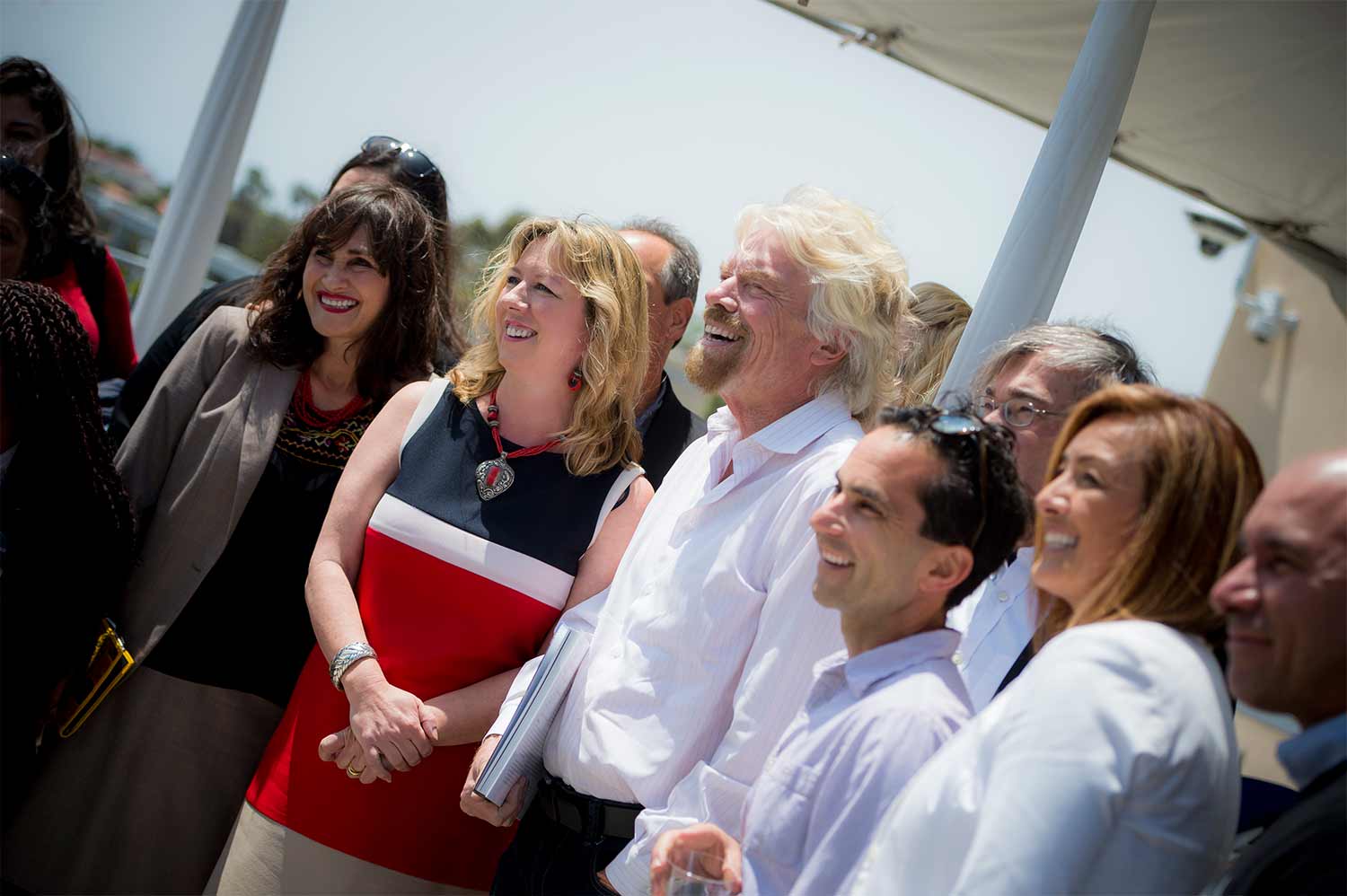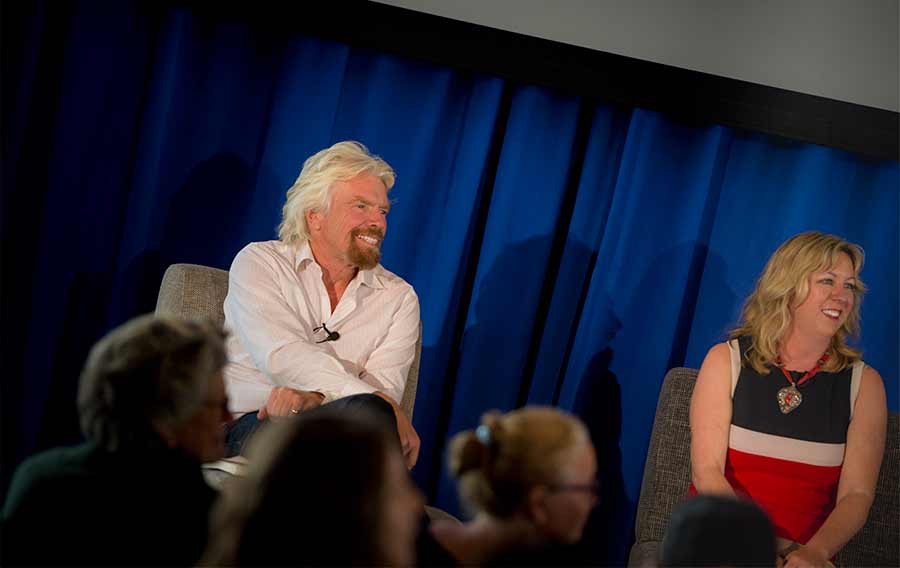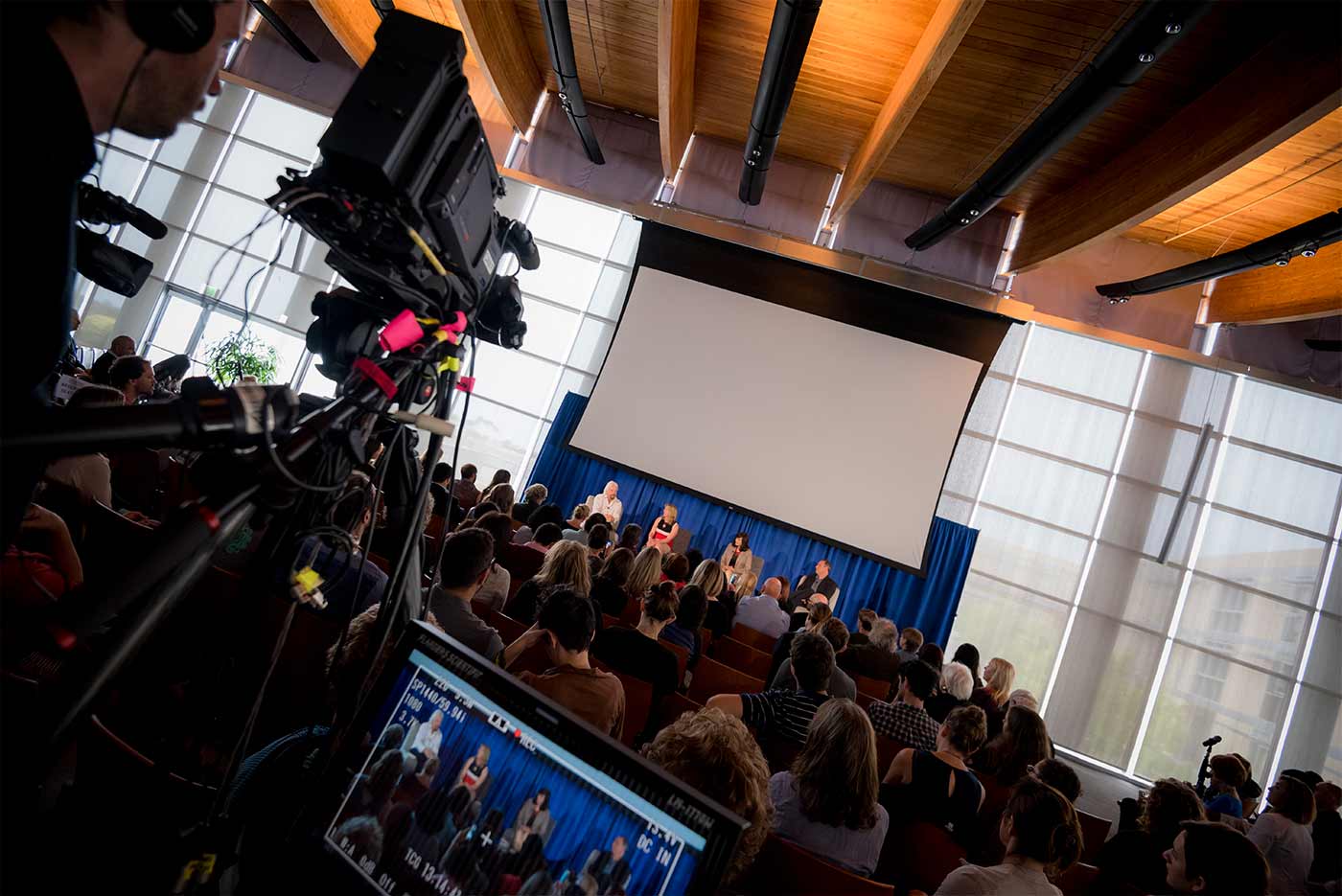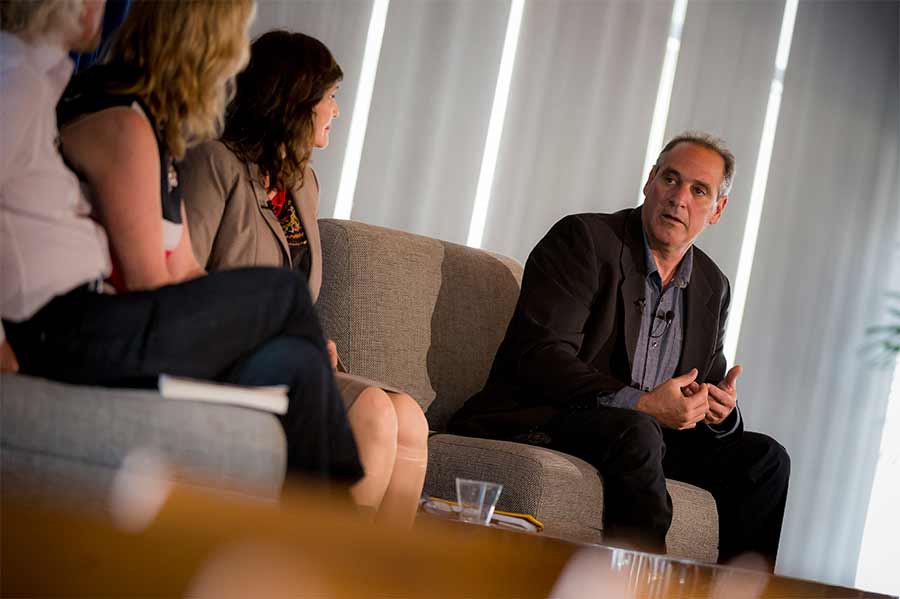By:
- Scott LaFee
Published Date
By:
- Scott LaFee
Share This:

Photos by Erik Jepsen/UC San Diego Publications
How Decriminalizing Drugs Might Affect the Spread of HIV in Tijuana
Richard Branson and experts debate the losing war on drugs—and its victims—at UC San Diego event
As the 1960s came to a close, Richard Nixon famously declared a “war on drugs.” They were “public enemy number one,” the president said. Their menace demanded a full-throated federal effort of interdiction, eradication and incarceration.
The goal: No more illegal drugs. Period.
The reality: The war still rages. There are now more illegal drugs produced and consumed than ever.
If the war on drugs were one of his businesses, said Sir Richard Branson, the renowned British magnate, philanthropist and activist, it would have been shut down within a year. “It hasn’t worked at all, ever, but governments continue to ignore the facts, creating untold misery. Drug use isn’t a criminal problem. It’s a health problem.”

From left, Richard Branson and Steffanie Strathdee
Branson, who has become a major voice in the global drug policy debate, visited UC San Diego last week to participate in a panel discussion on global drug decriminalization and Tijuana’s HIV/AIDS epidemic, which is fueled in part by widespread drug use, notably the sharing of needles to inject black tar heroin.
The event, sponsored by the UC San Diego Global Health Institute and the Open Society Foundations and held at International House on the Roosevelt College campus, featured a screening of “Breaking the Taboo,” a documentary on the war on drugs produced by Branson’s son, Sam, and a presentation by science journalist Jon Cohen on his book “Tomorrow is a Long Time,” (with Malcom Linton), which follows two dozen marginalized Tijuana residents living with HIV or at high risk of infection, many of whom injected drugs.
Each year, the Drug Policy Alliance estimates the United States alone spends $51 billion on anti-drug efforts. The Obama Administration, which had earlier advocated fundamental change, allocates twice as much for drug law enforcement than for drug treatment and education.
The prohibitionist focus clearly has failed, said Branson, a founding member of the Global Commission on Drug Policy, which recently castigated the United Nations General Assembly for its failure to significantly reform international narcotics policy. Worldwide, the illegal drug trade now tops $320 billion, almost twice the gross domestic product of New Zealand. In the U.S., roughly half of inmates in federal and state prisons are serving time for drug offenses.
Absolute prohibition simply doesn’t work, observes former President Bill Clinton in “Breaking the Taboo.” “We would have the same fighting and killing over cigarettes if we made smoking them a felony, so we legalized them.”

Steffanie Strathdee, director of the Global Health Institute and the event’s moderator/host, echoed one of the film’s key messages: “You can’t have a war on drugs without having a war on people.”
The effects and complexities of the war on drugs and people are painfully apparent in Tijuana, just 32 miles south of UC San Diego, but a world apart, especially along the city’s river canal where perhaps 1,000 men and women lived in “indescribable stench and filth,” said Cohen, who spent two years chronicling their lives for his book.
Most canal residents – who lived in ragged huts, in tunnels, even in manholes – were once U.S. residents. They were deported. Most are drug injectors, shooting up daily or more likely, many times a day, with shared syringes that radically increase their chances of becoming infected with the HIV virus. Strathdee’s research team has shown that Tijuana drug injectors who were deported from the U.S. are four times more likely to be HIV-infected, which is one reason the HIV epidemic in Tijuana is a binational problem.
In recent years, Mexico has changed some drug policies, at least on paper. Although it is legal to carry syringes and drug rehabilitation and HIV/AIDS medications are supposed to be free and freely available, reality is much different, according to Dr. Patricia Gonzalez-Zuniga, a research project coordinator for Strathdee who also leads a group of volunteers who regularly visit the canal and its outskirts to treat residents for chronic wounds caused by the unhygienic conditions and needle sharing. (The $5 admission fee charged to each of the 200 or so event attendees will be used by Gonzalez-Zuniga to buy medical supplies for the wound clinic.)

Jon Cohen
“The police don’t know the law. They continue to arrest drug users. There are many people who don’t see these people as human,” Gonzalez-Zuniga said.
Tijuana’s continuing crackdown on drug use and the end of support from the Global Fund for HIV, tuberculosis and malaria has essentially ended the availability of sterile needles through its small needle exchange programs. The consequence is not surprising: a renewed, rising in HIV infection rates in the region.
Branson said true remedies involve decriminalizing non-violent drug use and regulating and taxing the production of approved drugs, such as marijuana, so that new revenues can support drug treatment and rehabilitation. Countries like Portugal have done so, he said, and now report significant declines in drug-related crime and social ills. He said he was optimistic the U.S. might someday follow suit.
Strathdee said drug policy reform should be evidence-based, something she has pursued for years through a number of projects that have monitored, measured and assessed drug use and rates of HIV/AIDS in Tijuana and elsewhere in the world.
But given true life in places like Tijuana’s river canal, Branson’s vision of “someday” might be a long way away, as Cohen wryly noted in the name of his book: “Tomorrow is a Long Time.”
“We’re trying to make a difference, but it is very slow,” said Gonzalez-Zuniga. “It is one step forward and two steps back. And we need everyone’s help to make a difference.”
Share This:
You May Also Like
Stay in the Know
Keep up with all the latest from UC San Diego. Subscribe to the newsletter today.



